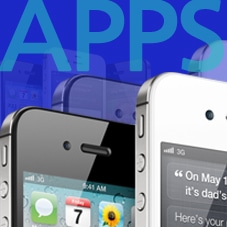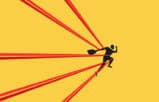When Jeff Sherr was introduced to Slack, it struck him as a better way to capture and share those “short explosions of ideas” that happen after conferences and other events. You know when you’re out to dinner, talking with people, and new ideas start popping up?
“Some of the best innovative ideas happen at those dinners,” says Sherr, who is training director for the Kentucky Department of Public Advocacy, and a leader in the National Association of Public Defenders.
Great Conversations, Flurry of Ideas and … Crickets
Indeed. I bet you’re nodding your head, remembering the flurry of email messages, texts and Facebook Groups — all created with good intentions — that go silent shortly after everyone returns to the office — and reality — after a conference.
Like most of us, when Sherr did remember something after an event, it was hard to find where, or if, the idea had been recorded.
Was it a Facebook message?
In a Facebook Group?
Or was it posted to a listserv?
Enter Slack
Accessible from any internet-connected device, Sherr says that Slack helps him “replicate what happens when we are at the same training event and having dinner or lunch and brainstorming ideas,” and want to keep the conversation going long afterward.
To begin with Slack, you create a “Team.” That team can be your law firm or company, public defenders around the country, a bar committee, a group of friends, or whatever you want. Conversations are then organized through “Channels.” Every team has #general and #random as default channels. You can create additional channels, name them as you wish (for example, by department, activity or location), and make them public or private.
Slack functions similarly to text messaging apps and Facebook, making it feel familiar from the start. You can tag people to pull them into conversations or get their attention, send private messages and integrate with a growing list of other applications.
Basically, you can make Slack work how you want.
- Related: “Tech Tips for Teams: Collaboration Tools” (Tips from Jim Calloway, Tom Mighell, Heidi Alexander, Dan Pinnington and Nora Regis.)
As Searchable Archive
For Sherr and his 41 team members, Slack creates a “searchable archive.”
People can upload information like schedules and training materials, he says, and it’s easy to see it now and to access it later.
This has proven especially useful around organizing conferences. Slack has even helped Sherr approach the sticky subject of how much drinking is going on at events. I’m hard-pressed to think of a legal conference, or any conference, where there wasn’t some instance of excess alcohol consumption. The stories are retold with such glee, it seems par for the course. But Sherr is working to move people away from “glorifying” drinking, and he says that Slack is proving to be helpful.
“Slack creates a space for that conversation to go on over a period of time,” says Sherr. “For some, it’s relevant now, for others, it’ll be relative two years from now. They’ll be able to go back and look and see what people are doing about it, and what articles have been posted about it. Slack gives us a nice archive.”
Of all the uses I’ve heard for Slack — from a new employee onboarding tool to wedding organization, activity planning and story writing — using it as a tool for open dialogue to address a weighty topic like drinking is a first.
Proof, again, that something popular in Silicon Valley is adaptable and useful for the legal profession.
Illustration ©iStockPhoto.com
























